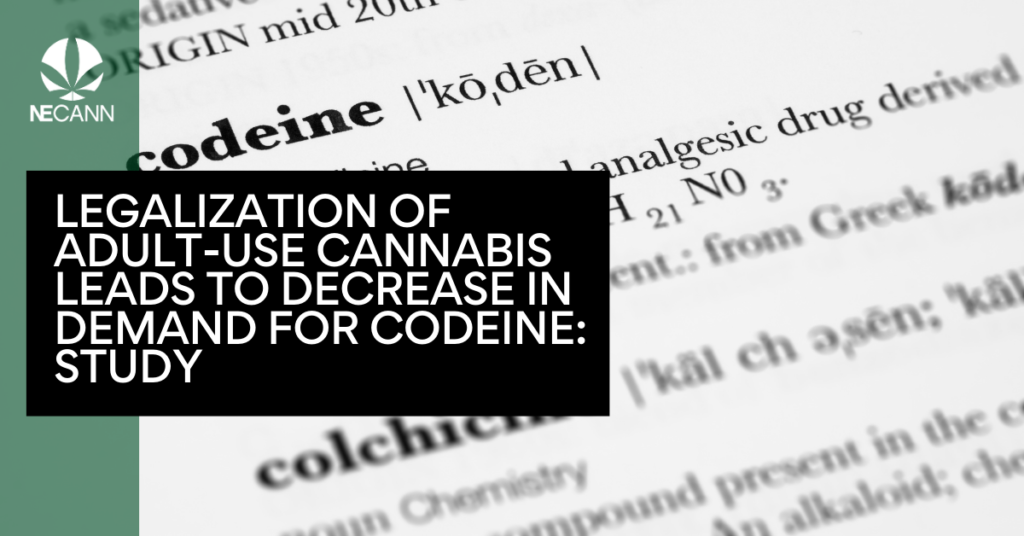Researchers at Cornell University, the University of Pittsburgh, the University of Georgia, and George Mason University found in a new study that prescription codeine use goes down in states where adults can legally use cannabis. The results of the study came out Thursday in the journal Health Economics. A 26% drop in the amount of codeine sold in pharmacies and up to a 37% drop after cannabis laws for adults had been in place for four years.
Researchers found that laws allowing adults to use cannabis had little effect on how hospitals, which usually have stricter rules than pharmacies, gave out codeine. They also found that the laws had little effect on how opioids like oxycodone, hydrocodone, and morphine were given out in any setting according to an article by Ganjapreneur.
Coleman Drake, the lead author of the study and a professor at the School of Public Health at the University of Pittsburgh, said that the results were “particularly meaningful” because “previous studies have focused on more potent opioids.”
Data on the movement of banned narcotics within the United States was evaluated via the Drug Enforcement Administration’s Automation of Reports and Consolidation Orders System. The National Institute on Drug Abuse of the National Institutes of Health funded the research.



